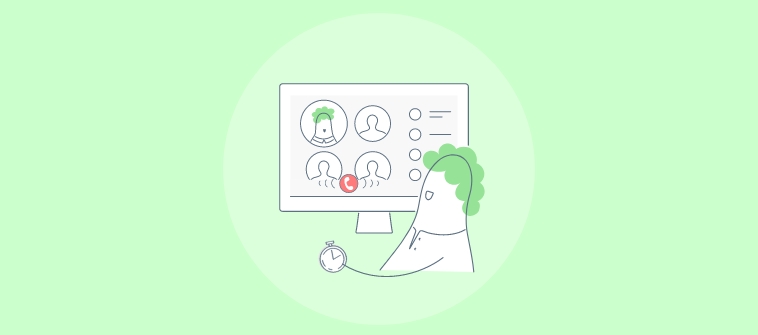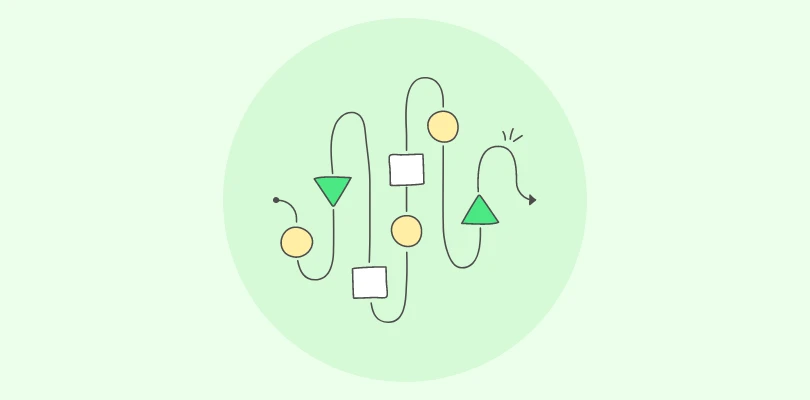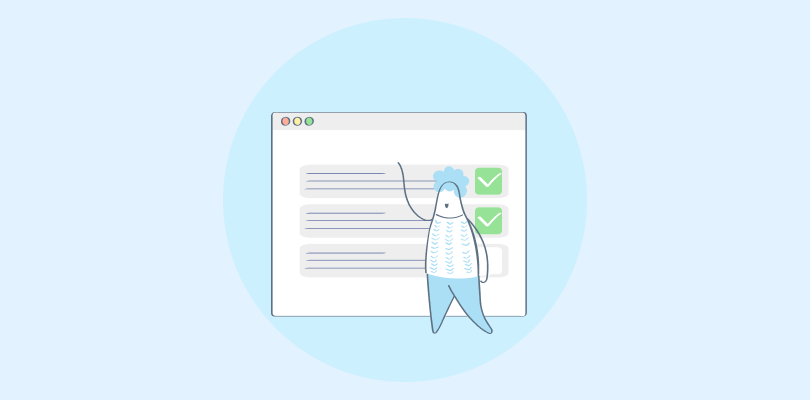Onboarding a bad employee can cost an organization productivity, reputation, staff morale, and a whole lot of money.
Zappos CEO Tony Hsieh once reckoned that his company had lost “well over $100 million” due to hiring mistakes.
But the good news is that a pre-employment personality test can help ensure that your company avoids all this trouble.
While assessing technical skills is essential, it simply isn’t enough to decide if a job candidate will thrive in your company and have a fruitful, long-lasting relationship with it.
You also have to find out if they would make an excellent cultural fit.
Now you’ve landed at the right place to know this. That’s because, in this blog post, you’ll find out:
- why you should conduct employment personality tests
- which popular pre-employment personality testing methods give the best results
- how you can create custom personality assessment tests
But first, let’s understand what a pre-employment personality test is.
What Is a Pre-Employment Personality Test?
Pre-employment personality tests are psychometric assessments designed to check various personality traits of job applicants.
These tests aim to find out if a candidate would be able to adapt to a company’s work culture smoothly and if they have the right temperament for the position. Some of the personality traits measured by pre-employment assessments & tests include:
- Agreeableness
- Emotional stability
- Conflict resolution
- Openness
- Social skills
- Extroversion
- Conscientiousness
- Leadership ability
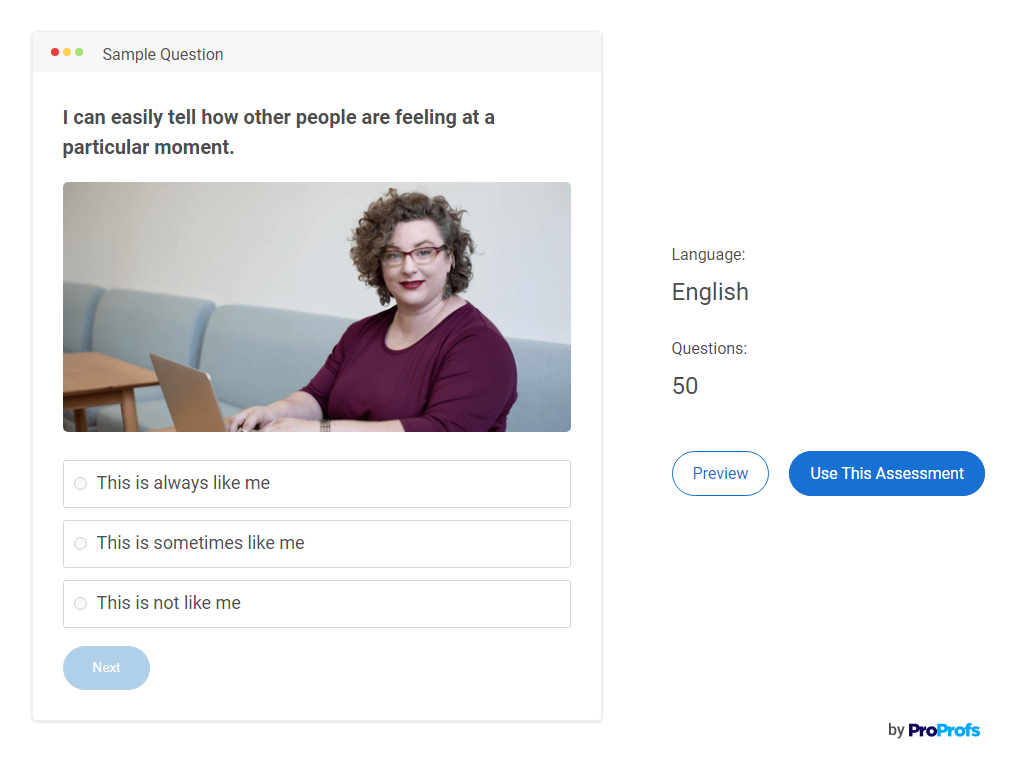
The questions in these tests may also target the applicant’s interaction style and personal preferences, in addition to personality traits.
The best personality tests for hiring employees target behavioral characteristics that remain somewhat unchanged throughout a person’s lifetime. For instance, a person’s level of extroversion is much more likely to remain the same as opposed to their current level of anger.
The results of these tests generally assign separate scores to each trait they measure and may also include comments on the candidate’s suitability.
Why Use a Pre-Employment Personality Test?
Personality testing of job candidates is crucial for ensuring optimal productivity and preventing financial loss. Here are three key reasons why incorporating personality assessments in the hiring process is important for your organization.
- Improved Understanding of Job Candidates

Job personality assessment tests let you have a more comprehensive analysis of a candidate’s behavioral tendencies, motivations, and stressors as compared to only having face-to-face interviews with them. This is especially true for remote hirings, which have the F2F round over a video call.
You can even use pre-employment personality assessments as a way to gain insights that can help interviewers ask better and more personalized questions.
- Better Communication Between Employees & Employer
Pre-employment personality tests are also excellent for finding out a candidate’s preferred communication style—whether it is more formal or casual.
Armed with this knowledge, the employer can have much more positive and effective interactions with them if they end up getting hired. According to Forbes, this approach is particularly helpful in the case of remote onboarding.
Using personality tests as a communication enhancement tool can also improve the chances of excellent candidates choosing your company over others.
By talking with a candidate in a manner that resonates with them, the interviewer can make them feel comfortable about the company and more inclined to accept the job offer.
- Conflict Resolution and Management
Understanding personality traits can be a powerful tool for managing and resolving conflicts. Knowing how individuals respond to stress or disagreement allows you to tailor your approach to defuse situations effectively.
This proactive strategy helps maintain a positive work environment and reduces workplace friction. By addressing conflicts with an understanding of personality dynamics, you can resolve issues more quickly and amicably.
Related Read: Tips to Create a Conflict Management Style Quiz
- Informed Hiring for Specialized Roles
Certain positions require specific personality traits to succeed. For instance, a customer service role might need someone with high empathy and patience. Personality tests help you identify candidates with the traits needed for specialized roles.
- Turnover Reduction
An employee who isn’t aligned with your company’s culture and/or role is bound to grow unhappy and become less productive.
While a big cause for concern in itself, this situation can also quickly progress into a full-blown burnout.
The result?
The employee leaves the organization way before they have adequately contributed to it.
As seen from the Zappos example, the cost of employee turnover can be astronomical and definitely warrants serious attention.
You can bring down the risk of your organization facing a high turnover by conducting personality tests for employment screening and making more informed hiring decisions.
10 Best Pre-Employment Personality Tests
Now that you’ve understood the importance of pre-employment personality tests, let’s look at some of the most popular and insightful personality tests used for hiring. After reading this, you’ll learn everything about such tests, including what employers look for in personality tests.
1. The Caliper Profile
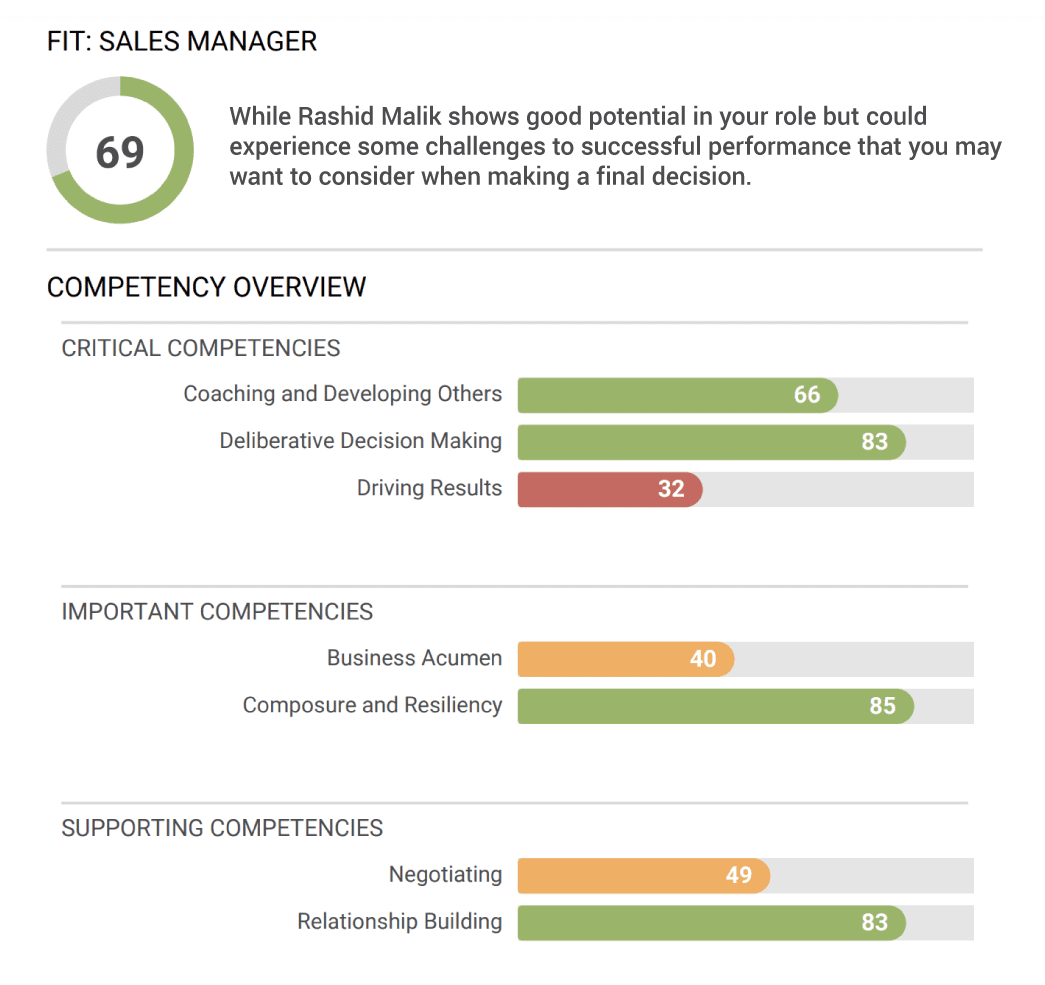
Image Source: calipercorp.com
One of the most thorough employment personality assessments, the Caliper Profile consists of 180 questions and measures 22 key personality traits, which are classified into four categories, namely:
- Leadership
- Interpersonal skills
- Problem-solving/decision-making
- Personal organization/time management
Most of the questions in this test present the candidate with four statements, out of which they have to select the one that best represents their view on an issue.
Apart from these multiple-choice questions, there are also some true/false and scaled (Strongly Agree to Strongly Disagree) questions.
The test is untimed, and it takes most people around 2-3 hours to complete it. Caliper is especially suited for hiring top and middle-level employees.
The Caliper Profile Breakdown:
- Number of questions: 180
- Time taken to complete: 2-3 hours
- Number of traits tested: 22
- Question format: Multiple-choice, true/false, and 5-point agreement scale
2. DISC
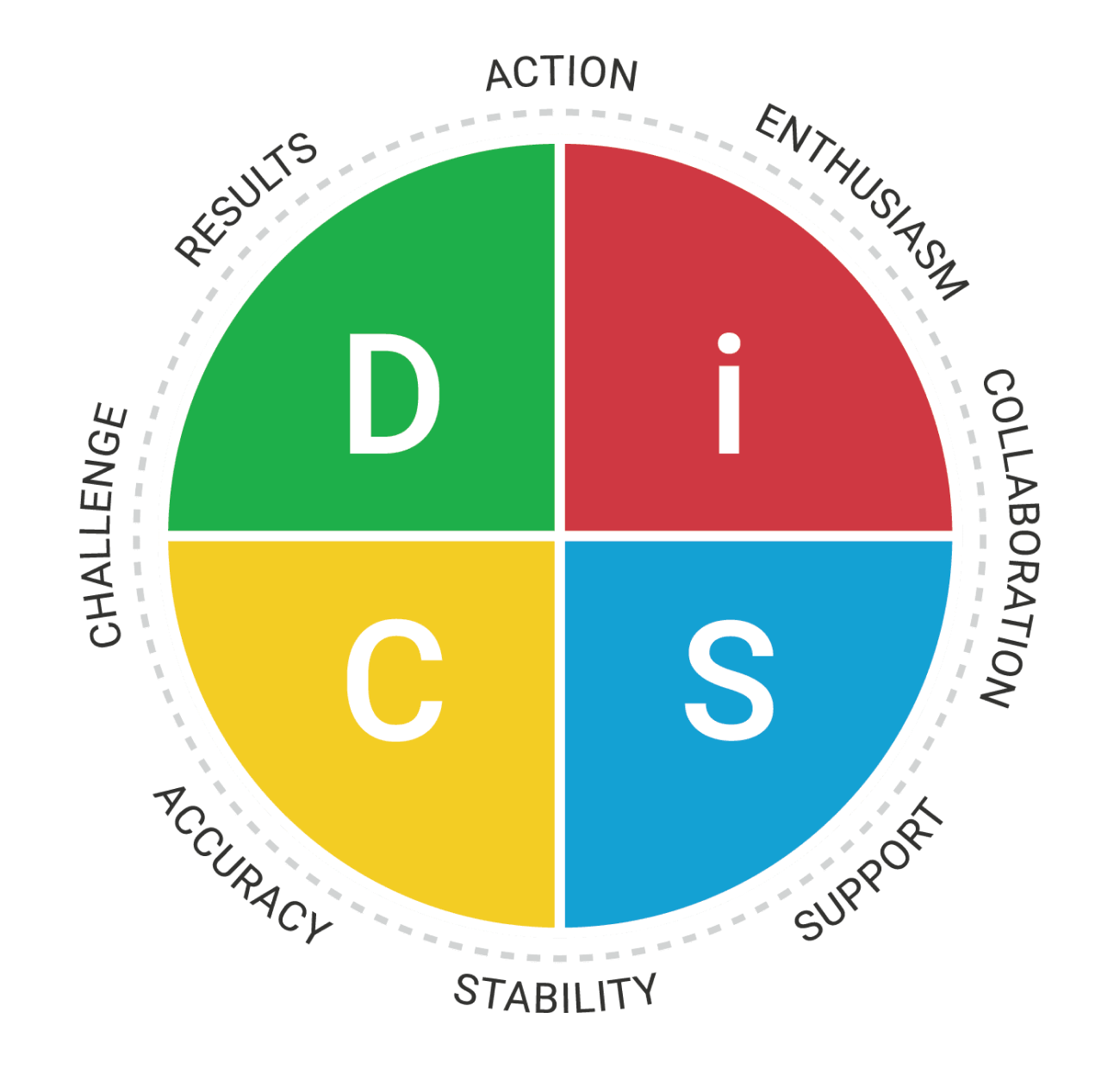
Image Source: discprofiles.com
DISC (Dominance, Influence, Steadiness, and Compliance) consists of 28 questions and classifies the test-taker into 12 personality categories based on their responses.
Each question in this pre-employment personality test presents the candidate with a statement for which they have to choose how strongly they agree or disagree with it.
Aside from the personality types, the DISC assessment also uncovers the candidate’s workplace priorities, motivators, preferences, and stressors.
While one of the shorter personality assessments for pre-employment testing, DISC is particularly useful in determining if a candidate can thrive in a collaboration-based environment.
It also works great as a tool for improving teamwork and communication and facilitating better, more personalized leadership.
DISC Assessment Breakdown:
- Number of questions: 28
- Time taken to complete: 15-20 minutes
- Number of traits tested: 4
- Question format: 5-point agreement scale
3. Myers-Briggs Type Indicator (MBTI)
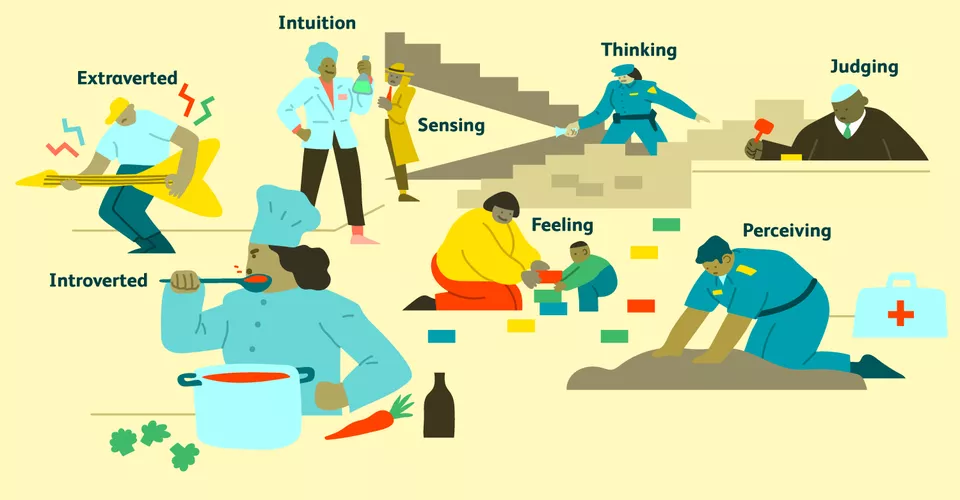
Image Source: verywellmind.com
The Myers-Briggs Type Indicator test is based on a theory proposed by the legendary psychiatrist Carl Jung and measures four personality traits:
- Introversion or extraversion
- Sensing or intuition
- Thinking or feeling
- Judging or perceiving
The results of this pre-employment personality test classify test-takers into one of 16 different personality types based on the above four categorizations. One of the longer personality assessments, MBTI consists of 93 dual-choice questions.
This test is highly beneficial for managers who wish to understand how they can better support new team members.
MBTI Breakdown:
- Number of questions: 93
- Time taken to complete: 20-30 minutes
- Number of traits tested: 4
- Question format: Dual-choice
4. Big Five
Unlike some of the other pre-employment assessments & tests in this list, the Big Five or Five-Factor Model doesn’t assign a personality type to the test taker. Instead, it only measures five main personality traits—openness, conscientiousness, extraversion, agreeableness, and neuroticism.
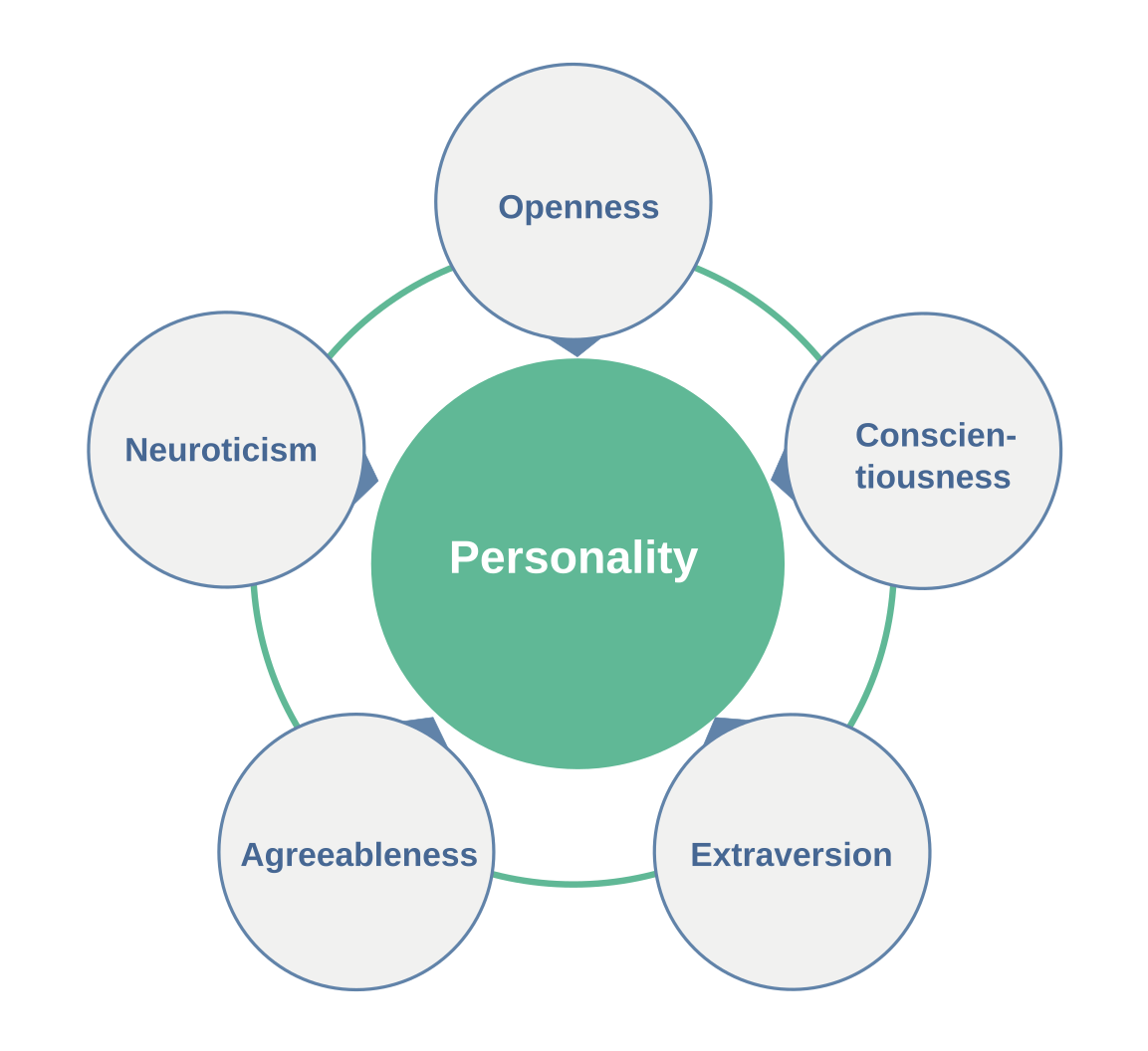
This personality test takes only around 10-15 minutes to complete but is still comprehensive enough to be a highly useful tool for recruitment. With its simplicity and brevity, this test is a great choice if you wish to have a test that has a shorter interview process and doesn’t feel intrusive.
Big Five Assessment Breakdown:
- Number of questions: There is no official version of this test, so the number of questions can vary but is usually around 50-60.
- Time taken to complete: 10-15 minutes
- Number of traits tested: 5
- Question format: 5-point agreement scale
Various free versions of the Big Five personality test are available online. With a robust quiz tool like ProProfs Quiz Maker, you can easily conduct free pre-employment testing, thanks to its free plan.
5. Predictive Index (PI) Behavioral Assessment
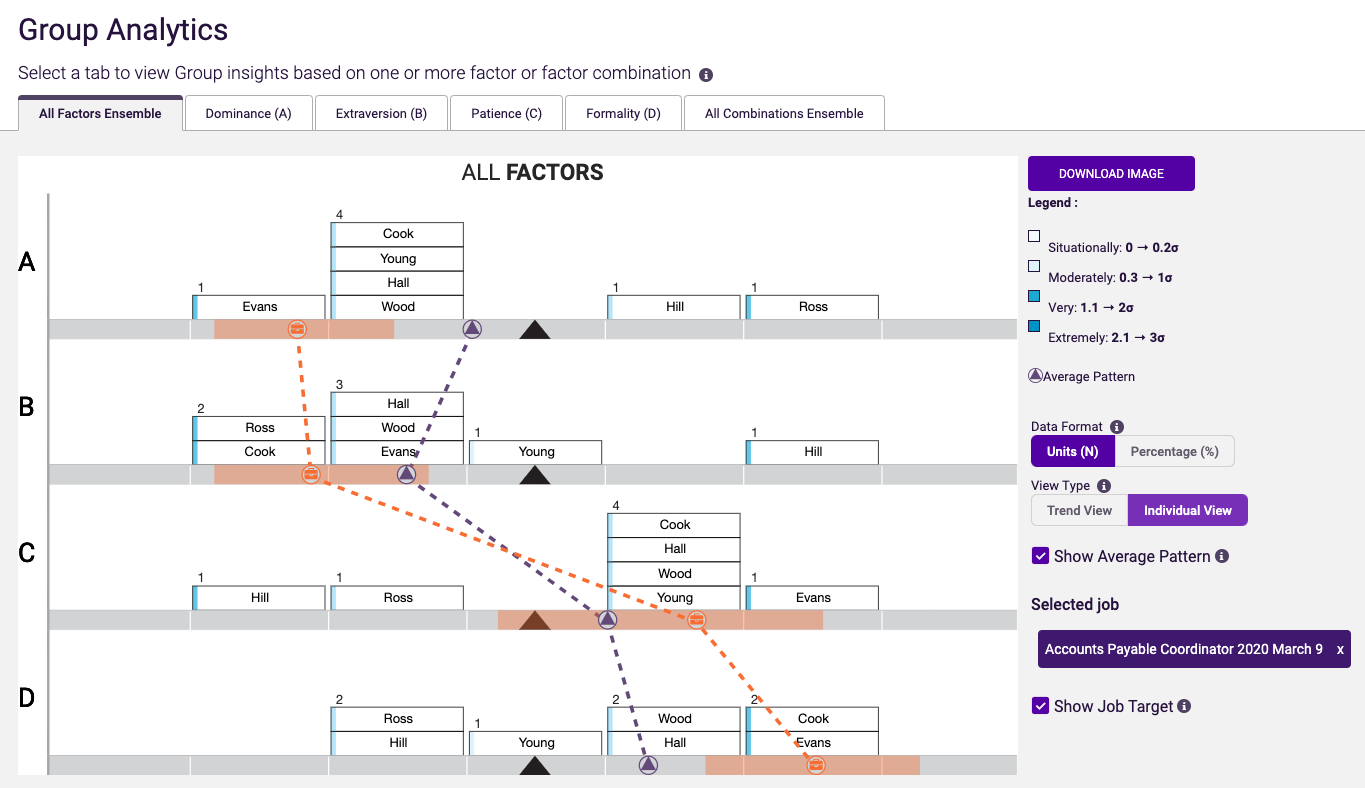
Image Source: predictiveindex.com
Another brief test is the Predictive Index Behavioral Assessment. It checks four primary and two secondary personality aspects. These are—
Primary:
- Dominance
- Extroversion
- Patience
- Formality
Secondary:
- Decision-making
- Response Level
The test has a free-response format, with two identical checklists of adjectives that the test-taker has to fill in.
One of the checklists requires the test taker to pick the adjectives that best describe how people expect them to behave, while in the other, they pick adjectives that characterize how they feel they really are. Most people are able to finish this test in around 10 minutes.
PI Behavioral Assessment Breakdown:
- Number of questions: 50
- Time taken to complete: Around 10 minutes
- Number of traits tested: 6
- Question format: Checklist
6. The SHL Occupational Personality Questionnaire (OPQ)
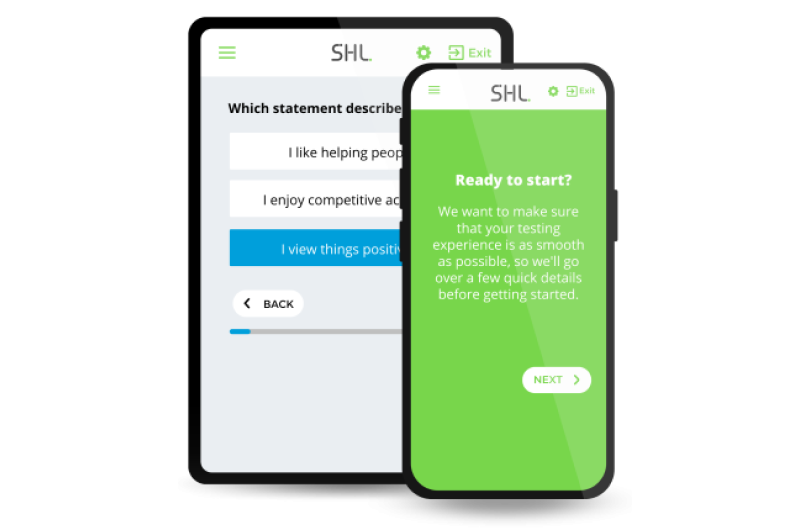
Image Source: shl.com
Launched by the Saville and Holdsworth Ltd. (SHL) group, this MCQ-based pre-employment personality test contains a total of 104 questions that measure as many as 32 different personality traits, which are categorized into three personality domains—
- Relationship with people
- Thinking style and feelings
- Emotions
A notable feature of the SHL Occupational Personality Questionnaire is its easy-to-understand custom reports. The reports present the strengths and weaknesses of the test-taker in a helpful graphical representation.
SHL OPQ Breakdown:
- Number of questions: 104
- Time taken to complete: Around 20 minutes
- Number of traits tested: 32
- Question format: You are presented with 3 statements, out of which you have to select one that is most true about you and one that is least true about you
7. 16 Personality Factor (16PF) Questionnaire
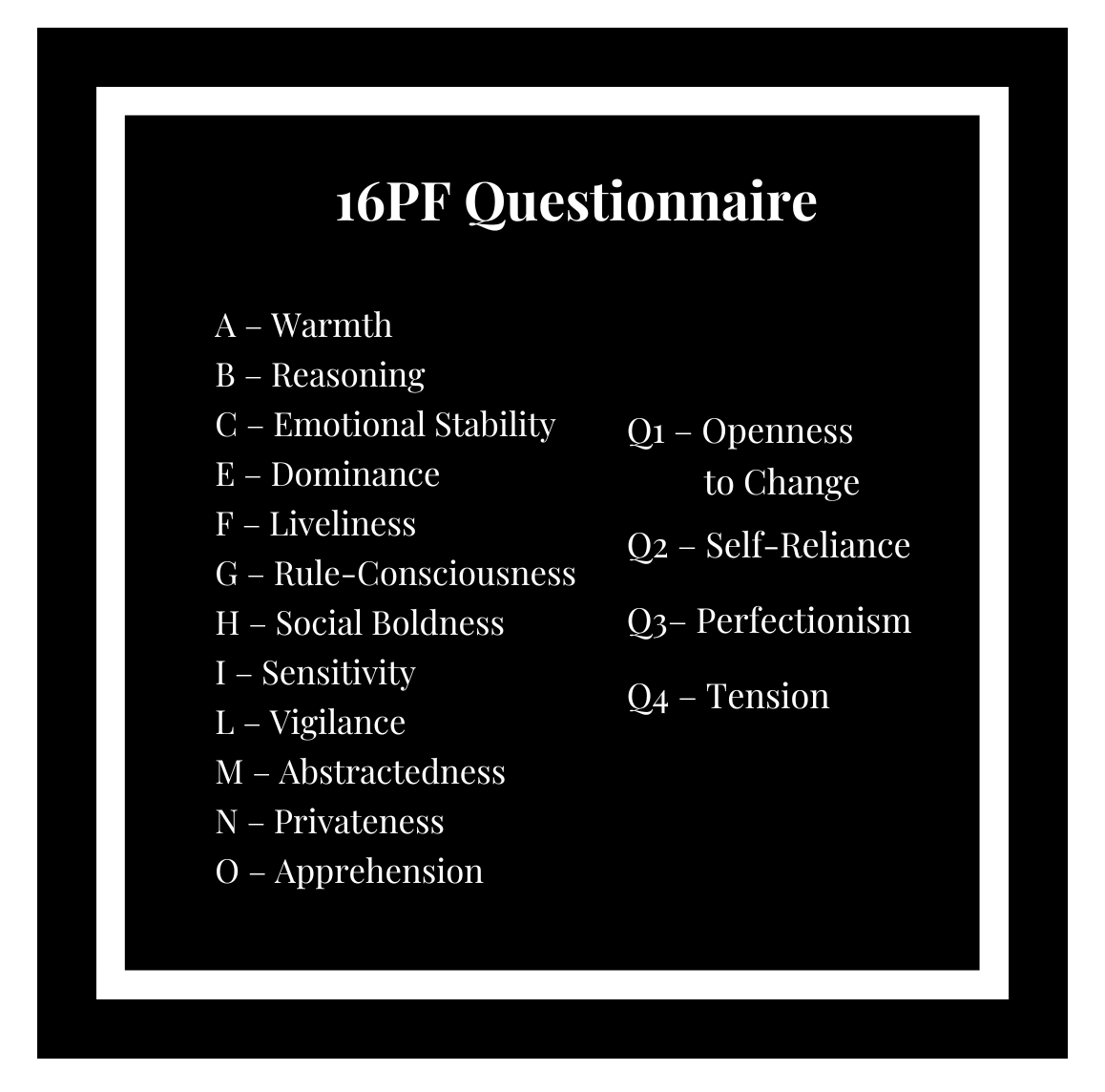
Image Source: personality-psychology.com
As is evident from its name, the 16PF Questionnaire looks into 16 personality traits to evaluate a candidate’s professional effectiveness. Warmth, liveliness, social boldness, privateness, and self-reliance are some of these traits.
The untimed test consists of 185 questions in a scaled format (Strongly Agree to Strongly Disagree) and takes around half an hour to complete. The results are broken down into five categories:
- Relating to Others
- Influence and Collaboration
- Thinking Style
- Structure and Flexibility
- Management of Pressure
16PF Questionnaire Breakdown:
- Number of questions: 185
- Time taken to complete: Around 30 minutes
- Number of traits tested: 16
- Question format: 5-point agreement scale
8. NEO PI-R (The Revised NEO Personality Inventory)
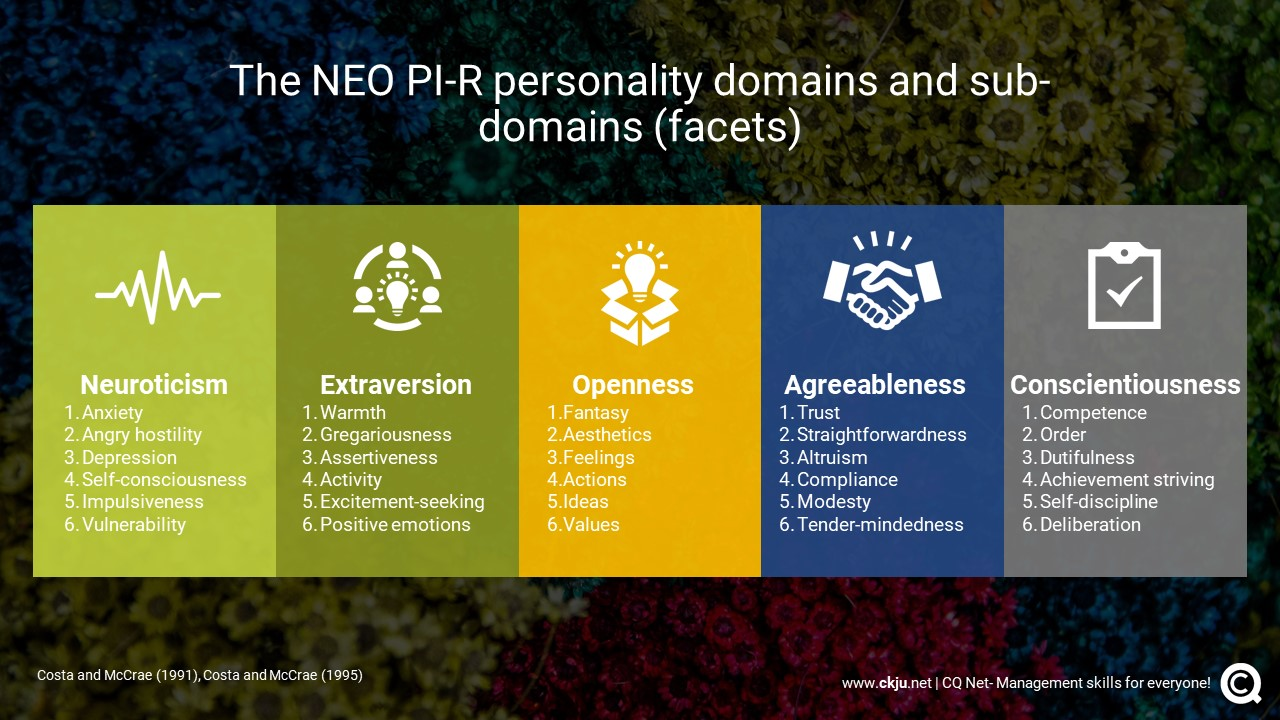
Image Source: ckju.net
An offshoot of Big Five, the Revised NEO Personality Inventory also measures the same five traits but breaks them down into sub-categories called “facets”. Each main trait has six associated facets.
For instance, the conscientiousness trait includes competence, orderliness, dutifulness, achievement striving, self-discipline, and cautiousness.
Many of these facets are considered highly important in the modern workplace, making NEO PI-R one of the most popular pre-employment personality tests.
This test is available in two versions, a short version with 60 questions and a full-length version with 240 questions. Each question presents the test taker with a statement where they have to select how strongly they agree or disagree with it on a five-point scale.
NEO PI-R Breakdown:
- Number of questions: 60/240
- Time taken to complete: Around 15 minutes for the short version, 30-40 minutes for the extended version
- Number of traits tested: 5 main traits and 30 sub-traits
- Question format: 5-point agreement scale
9. HEXACO Personality Inventory
Another pre-employment personality test similar to Big Five, the HEXACO Personality Inventory, measures six personality traits—Honesty-humility, Emotionality, Extraversion, Agreeableness, Conscientiousness, and Openness to experience.
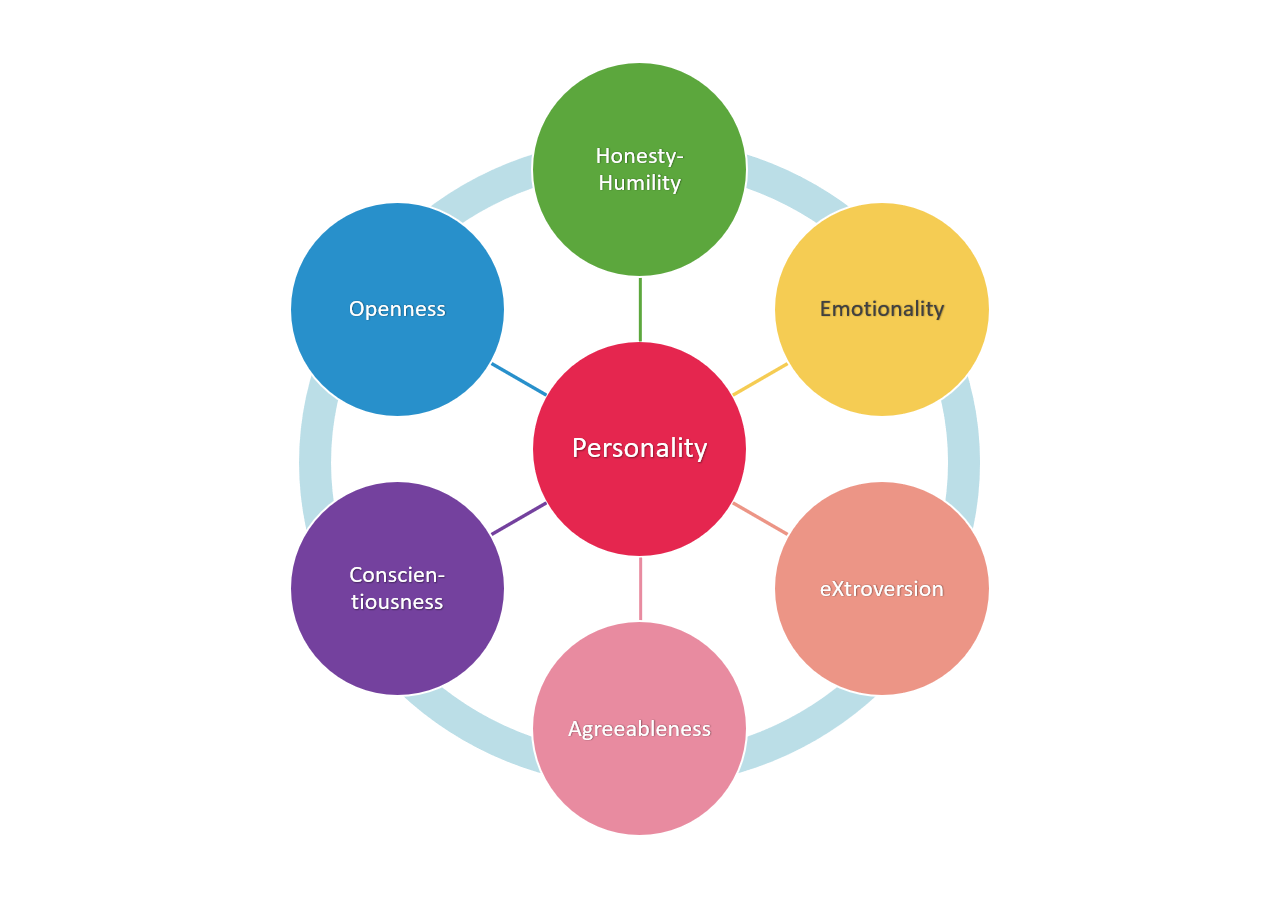
Like NEO PI-R, HEXACO also features facets associated with each main personality trait (four facets per trait). The test is available in three formats—
- Full-length version with 200 questions
- Half-length version with 100 questions
- HEXACO-60 with 60 questions
HEXACO Personality Inventory Breakdown:
- Number of questions: 200/100/60
- Time taken to complete: Around 15 minutes for the 100-question format
- Number of traits tested: 6 main traits, 24 sub-traits
- Question format: 5-point agreement scale
10. Eysenck Personality Inventory
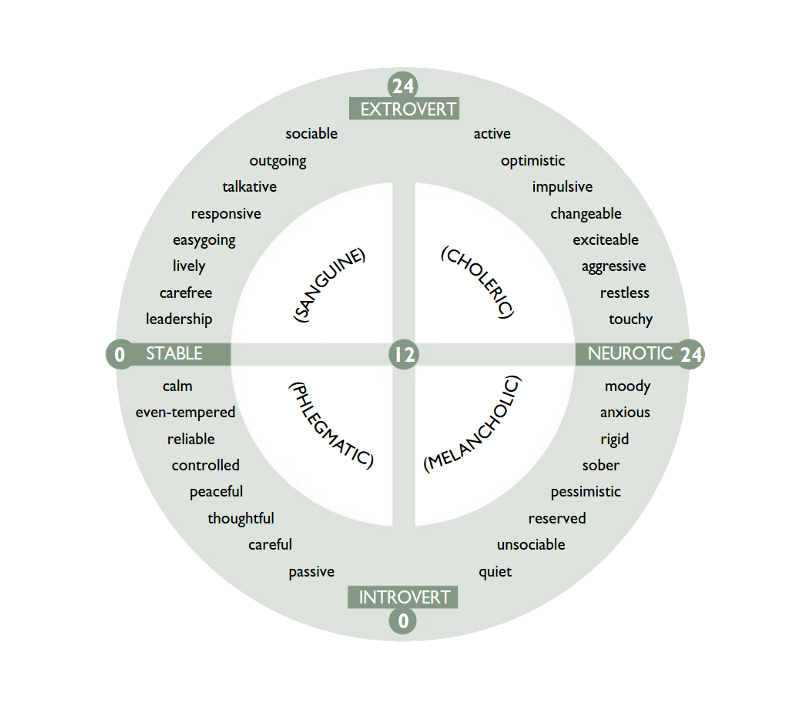
Image Source: chsresults.com
Developed by prominent psychologist Hans Eysenck, The Eysenck Personality Inventory analyses two key personality traits—extroversion vs. introversion and neuroticism vs. stability. The assessment consists of 100 yes/no questions and provides three main scores as the results.
Two of these scores (“E” and “N”) measure the extroversion and neuroticism levels, while the third, the “lie” score, measures how honest the candidate has been in answering the questions.
A shortened version of the test is also available, with 57 questions in the same format.
Some recruiters use a modified version called Eysenck Personality Questionnaire. It includes psychoticism/socialization as a third personality trait.
Eysenck Personality Inventory Breakdown:
- Number of questions: 100/57
- Time taken to complete: 20-35 minutes for the full-length version, 10-20 minutes for the shortened version
- Number of traits tested: 2
- Question format: Yes/No
How to Create a Custom Pre-Employment Personality Test
The personality tests mentioned above are all great for estimating a job candidate’s probability of being a good behavioral fit.
But, if you have some particular personality requirements for a role, designing your own custom pre-employment personality test may be the right course for you.
Here’s how you can do it in 6 steps.
Step 1: Decide Which Behaviors to Measure
When creating a personality test, you should be perfectly clear about which personality traits you need to assess before you draft your first question. Thoughtfully curate your list of behaviors giving due consideration to your company’s values and culture as well as the temperamental qualities needed for the role.
💡Pro Tip:
No matter which role you are hiring for, do include conscientiousness among the traits you decide to measure. Research indicates that conscientiousness is the single most important predictor of job performance.
Step 2: Create Questions & Answer Options
Once you’ve decided on the personality traits that your test will target, the next step is to design questions that will thoroughly and accurately assess those traits.
Many candidates look up pre-employment personality test tips online as part of their interview preparation. So, your questions need to be clever and unique.
There are a variety of styles of questions you can include in your custom employment personality test. These include—
- Multiple-choice with four statements
- Scaled (Strongly Disagree to Strongly Agree)
- True/False
- Yes/No
- Multiple-response/Checkbox
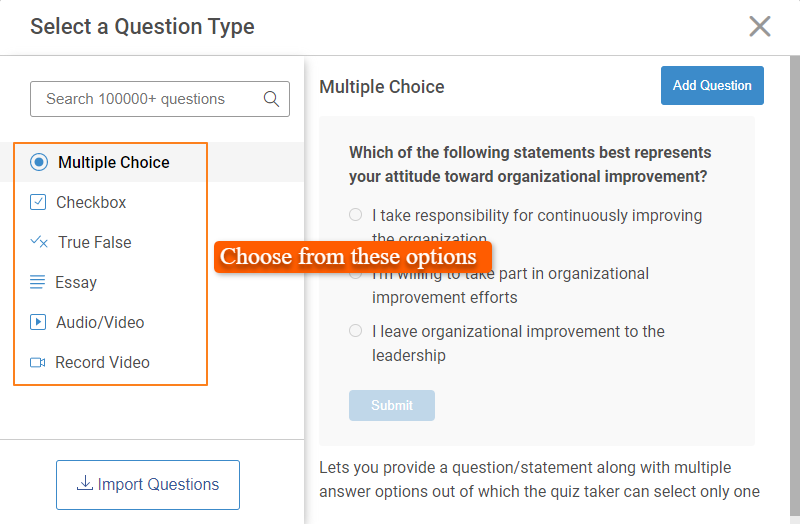
ProProfs, a Pre-Employment Personality Test Maker, lets you add questions in multiple ways. You can:
- Create questions from scratch
- Modify a ready-to-use personality assessment
- Add questions from a massive question bank with 100,000+ assessments and quizzes
- Bulk import assessment questions from an Excel spreadsheet
💡Pro Tip:
Don’t restrict yourself to creating simple text-based questions and answer options. Feel free to include images and videos if doing so helps you ask your questions in a better way.
Read: How to Create a Multiple-Choice Question Test
Step 3: Map Answer Options to Personalities
With your questions and personality traits at hand, you can start matching each answer option with a personality type.
Keep in mind that some answer choices in your pre-employment personality test may fit multiple trait categories. With ProProfs Quiz Maker, you can make this categorization by opting for advanced scoring when editing a personality quiz question.
Step 4: Allocate Points to Answer Options
Next up, you need to assign points to each answer option based on how strongly you feel it reflects a particular personality trait. For the more complex questions in your personality test, you may need to assign multiple personality types and points to each answer option.
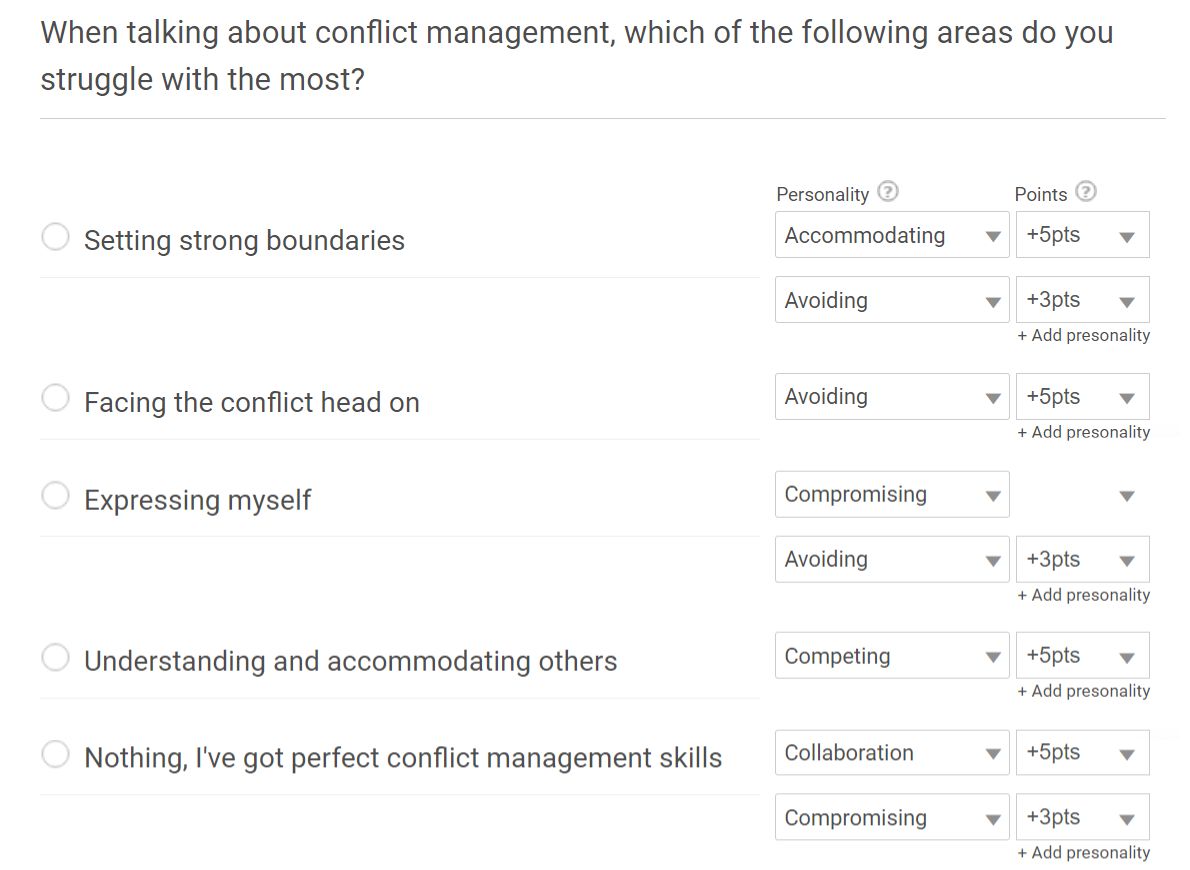
💡Pro Tip:
When assigning points to a question, keep in mind that an extremely high score may be undesirable for some of the personality traits.
For instance, if someone scores the maximum in the “confidence” category, it may indicate a dominant personality. This will be unsuitable if you’re looking for someone with a more balanced temperament.
Step 5: Start Building the Test
Having decided on the personality traits, questions, answer options, and scoring, you can move on to building your assessment online using a quiz-making tool.
When choosing a pre-employment personality test maker, look for the following key features:
- A high degree of quiz configurability
- Automated and advanced scoring
- Several dedicated options for creating personality quizzes
- Fast and intuitive UI
- Facility to include images, audio, and videos in questions and answer options
- A question bank to help you in drafting your questions
- In-depth reporting and analytics
ProProfs has all of the above-mentioned features and also includes additional functionalities that help in creating highly-insightful personality assessments. This includes adding a countdown timer, disabling tab switching, randomizing questions and answer options, question branching logic, and more.
💡Pro Tip:
Provide a brief overview of your test in the description section. You can include instructions for test-takers, what they can expect from the test, and the time limit (if any) for it. You can also include a video about the company and/or the test to go with the overview.
Also, you may want to hide the test scores in the results screen. Make sure that the online personality test software you choose offers these functionalities in the report settings.
Step 6: Customize & Style the Test
Your pre-employment personality test is one of the first things a job candidate will see about your company. That’s why it’s crucial to style and customize it to accurately reflect your corporate identity.
With ProProfs, you can create professional-looking and highly-customized employment personality tests using its collection of 100+ beautiful themes and a wide variety of fonts and layouts.
You can also white-label your test with your company logo and colors and change the background to any image you like.
Step 7: Test and Validate
It’s crucial to validate your personality test before using it in your hiring process. This helps ensure it’s accurate and fair and provides valuable insights. Here’s what you need to do:
- Form a group of people similar to your target candidates, take the test, and gather their feedback.
- Analyze the results to ensure they are reliable and valid.
- If possible, compare your test results to those of established personality tests.
- Refine and improve your test based on the feedback and analysis.
By taking the time to test and validate your custom test, you can be confident that it’s a valuable tool that helps you make more informed hiring decisions.
💡Pro Tip:
After a candidate has taken the assessment, their report will be required by everyone in the interview panel. If you’re interviewing several candidates every day, it would be best to get their personality test reports automatically mailed to various e-mail addresses.
FREE. All Features. FOREVER!
Try our Forever FREE account with all premium features!
Example of Pre-Employment Personality Test
Here’s a glimpse of a ready-to-use pre-employment personality test created with ProProfs Quiz Maker. This test has 50 multiple-choice questions and measures 10 personality traits.
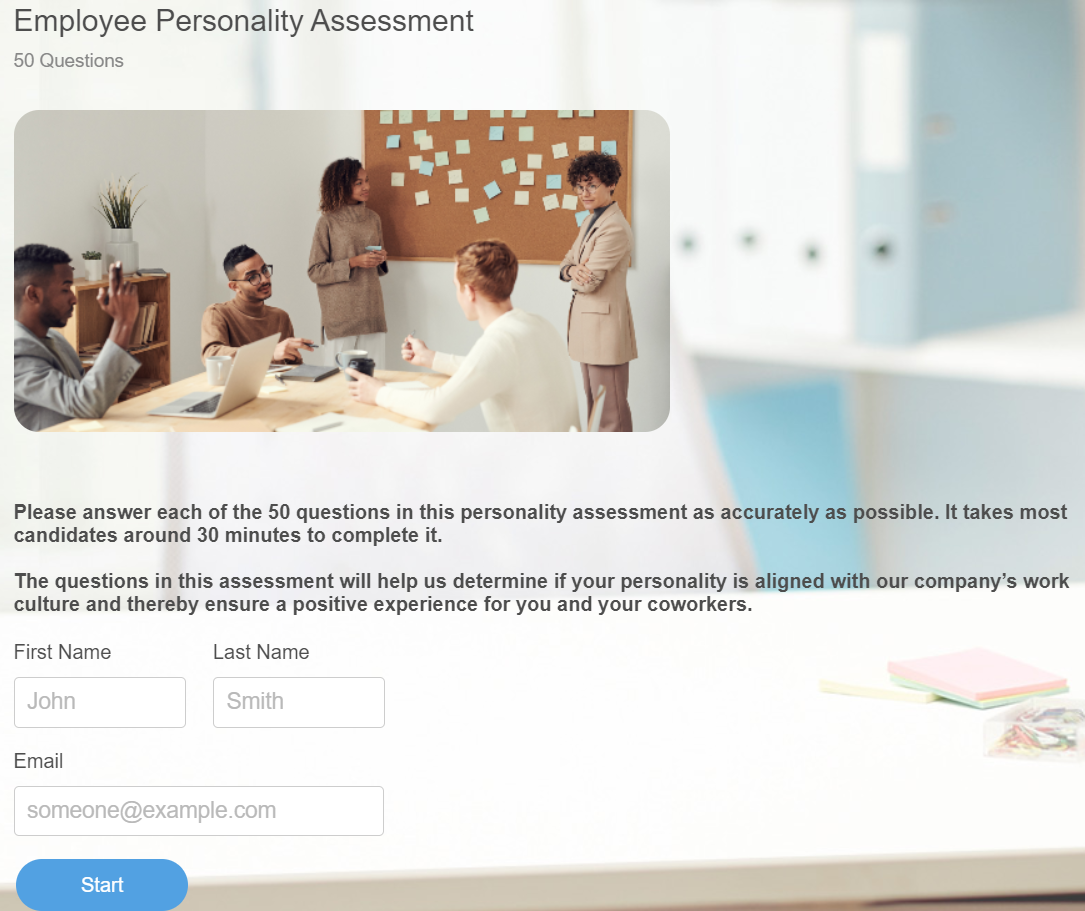
A Selection of the Questions
Check out a few questions from this assessment, along with the personality traits that they target.
- Personality Trait Assessed – Emotional Intelligence
Question/Statement – I can easily tell how other people feel at a particular moment.
Answer Options:
- This is always like me
- This is sometimes like me
- This is not like me
- Personality Trait Assessed – Honesty and Integrity
Question/Statement – If a coworker consistently left early without following the protocol for doing so, would you cover for them?
Answer Options:
- Never
- Sometimes
- Always
- Personality Trait Assessed – Confidence
Question/Statement – You are starting in a new position that requires you to perform tasks that you do not have any prior experience with. You…
Answer Options:
- Acknowledge that you are resourceful and will find others who will help you be successful on the job to learn
- Try your best to learn without bothering other people
- Decide that it’s best not to take a job for which you are not qualified
- Personality Trait Assessed – Teamwork
Question/Statement – You’re on an urgent deadline and one of your teammates gets sick with the flu. You…
Answer Options:
- pull together a team meeting and figure out how you can work together to meet the deadline.
- say nothing and do whatever is needed, but feel resentful that your teammate isn’t pulling their weight.
- try to find out if your teammate is faking illness to avoid meeting the deadline.
- Personality Trait Assessed – Conflict Resolution
Question/Statement – In disagreement with another person, I try and understand their perspective and position.
Answer Options:
- This is a lot like me
- This is sometimes like me
- This is never like me
Report
Here’s a look at the reporting for this pre-employment personality test. The detailed report makes it easy to analyze the candidate’s personality by revealing how they scored on each of the 10 parameters and which options they chose for each of the questions.

Best Practices to Leverage Pre-Employment Personality Assessments
When using pre-employment personality assessments, it’s important to follow best practices to ensure fairness, effectiveness, and compliance with legal regulations. Here are some best practices to consider:
- Use Validated Assessments
Choose personality assessments that have been scientifically validated and are reliable and valid. Look for assessments that have undergone rigorous testing and have evidence of their predictive validity for job performance. You can refer to the types of personality assessment tests we discussed above for the same.
- Clearly Define Job Requirements
Before choosing a personality assessment for your hiring process, clearly define the job requirements and skills required for that role. This way, you can ensure that the results from the personality test are valid for the role.
- Train Administrators
Although much of the assessment process has been digitized, human intervention is still required. And so, you must train the individuals responsible for interpreting and conducting the assessments.
They should have a solid understanding of the assessment, its purpose, and its limitations. This will help maintain consistency, accuracy, and fairness in the assessment process.
- Ensure Fairness and Avoid Bias
You should create personality assessments that don’t favor bias. For example, ensure the questions and language in the assessment are respectful and undiscriminating.
This problem is, of course, avoidable by using a reliable online assessment tool that offers professionally-designed personality test assessment templates.
- Provide Clear Instructions and Context
If you want effective results from the assessments, you need to clearly communicate the purpose of the assessment to candidates and provide clear instructions on how to complete it.
Remember to mention the assessment is just one part of the overall evaluation process and is not meant to judge their worth as a person.
- Make Them a Part of the Holistic Evaluation
Personality assessments are only effective if used along with other evaluation methods, such as interviews, cognitive assessments, skills assessments, reference checks, and work samples.
Instead of making hiring decisions solely based on the assessment results, use it to gather additional information about a candidate’s strengths, weaknesses, and fit for the role.
- Maintain Candidate Confidentiality
You need to ensure the pre-employment assessment test results are securely stored and only accessible to authorized personnel to protect candidate privacy and confidentiality. Use the assessment results solely for employment-related purposes.
- Always Use Updated Assessments
You need to ensure that the pre-employment personality assessment you use is up-to-date and follows the current standards. For this, you can leverage an online assessment tool that offers professionally-designed assessment templates.
- Comply With Legal Regulations
Familiarize yourself with local, regional, and national laws governing pre-employment assessment tests, such as the Equal Employment Opportunity Commission (EEOC) guidelines in the United States.
Ensure that your assessment practices are compliant with these regulations to avoid potential legal issues.
Benefits of Personality Testing in Hiring
While we’ve already discussed why pre-employment personality tests are essential, let’s dive into some specific benefits that can transform your hiring process. Here’s why these assessments are incredibly valuable:
- Holistic Candidate Profiles
Personality tests provide a comprehensive view of candidates beyond their resumes. They reveal traits, work preferences, and values that might not come up in a typical interview. This deeper understanding helps you see how someone might fit into your team and company culture from the start.
This insight allows you to predict how a candidate will handle stress, interact with colleagues, and tackle challenges. With this knowledge, you can make more informed decisions, ensuring you hire individuals who will thrive in your unique environment.
- Enhanced Team Synergy
Building effective teams involves understanding how different personalities can complement each other. Personality assessments help you identify candidates who will enhance team dynamics and collaboration.
This means fewer conflicts and more productive teamwork. When team members understand and appreciate each other’s strengths, they can work together more smoothly, leading to better project outcomes and a more harmonious workplace.
- Conflict Resolution and Management
Understanding personality traits can be a powerful tool for managing and resolving conflicts. Knowing how individuals respond to stress or disagreement allows you to tailor your approach to defuse situations effectively.
This proactive strategy helps maintain a positive work environment and reduces workplace friction. By addressing conflicts with an understanding of personality dynamics, you can resolve issues more quickly and amicably.
Related Read: Tips to Create a Conflict Management Style Quiz
- Strategic Development and Growth
Personality tests are also valuable for employee development. They can highlight potential leaders and areas where team members might need additional support or training. This allows you to tailor development programs to each individual’s needs.
By investing in personalized development plans, you’re fostering loyalty and engagement. Employees feel valued when they see that the company is committed to their growth, which boosts morale and productivity.
- Informed Hiring for Specialized Roles
Certain positions require specific personality traits to succeed. For instance, a customer service role might need someone with high empathy and patience. Personality tests help you identify candidates with the traits needed for specialized roles.
This targeted approach ensures that you’re not just filling a position but finding the best fit for the role. Employees who are well-matched to their jobs are more likely to excel and remain satisfied, leading to improved performance and job satisfaction across the board.
Limitations of Pre-Employment Personality Tests
While personality tests can be incredibly useful, it’s important to acknowledge their limitations to ensure they are used effectively. Here are some potential drawbacks to keep in mind:
- Potential for Bias
Personality tests may inadvertently favor certain demographic groups, leading to biased results. Ensuring that tests are free from cultural, gender, and age biases is crucial to maintain fairness and equity in the hiring process.
This issue can be mitigated by selecting well-validated tests and continuously reviewing and updating them to align with best practices and legal guidelines. However, it’s important to be aware of this limitation and take steps to address it.
- Overemphasis on Personality
Relying too heavily on personality tests can overshadow other critical factors such as technical skills, experience, and cognitive abilities. While personality is important, it should be one part of a comprehensive assessment strategy.
Balancing personality assessments with other evaluation methods, like skills tests and interviews, ensures a more holistic view of a candidate’s suitability for the role. This approach helps prevent overlooking qualified candidates who may not perform well on personality tests alone.
- Misinterpretation of Results
Without proper training, hiring managers may misinterpret the results of personality tests, leading to inaccurate assessments. Understanding the nuances of these tests requires expertise to ensure they are used correctly.
Providing training for those who administer and interpret these assessments can mitigate this risk. This training should cover how to read and use the results effectively, ensuring they contribute positively to the hiring decision.
- Candidate Resistance
Some candidates may view personality tests as intrusive or irrelevant to their job performance, leading to resistance or disengagement. Clearly communicating the purpose and benefits of these assessments can help mitigate this issue.
Transparency about how the results will be used and ensuring candidates understand that personality tests are just one part of the evaluation can help reduce resistance and improve the overall candidate experience.
- Static Nature of Personality
Personality traits measured by these tests are relatively stable and may not account for personal growth or changes over time. It’s important to consider that individuals can develop and adapt, and personality tests may not fully capture this dynamic nature.
Using personality tests as part of an ongoing development process, rather than a one-time assessment, can help address this limitation. Regularly reassessing and combining results with continuous feedback and performance reviews provides a more accurate and evolving picture of an employee’s potential.
By understanding these limitations, organizations can better integrate personality tests into their hiring processes, ensuring they are used effectively and in conjunction with other evaluation methods.
FREE. All Features. FOREVER!
Try our Forever FREE account with all premium features!
Create Free Pre-Employment Personality Tests
An efficient hiring process is incomplete without pre-employment personality tests. However, these tests should be one part of a comprehensive recruitment strategy. They shouldn’t replace other vital methods like face-to-face interviews or video interview assessments. Use personality tests to complement your existing methods for the best hiring results.
For those looking to create custom personality assessments, advanced and feature-rich software is essential. ProProfs Quiz Maker offers extensive settings and customizable scoring to help you design professional personality quizzes effortlessly.
Plus, with a free plan for short quizzes that includes all features, you can start creating your pre-employment personality tests today and elevate your hiring process to new heights.
Frequently Asked Questions
How do I make sure my pre-employment personality test is fair for all candidates?
To keep your test fair, ask questions that are neutral and free from stereotypes. Focus only on traits that relate to the job—not personal opinions or background. Let candidates know how their answers will be used and who will see them. Combine test results with interviews or real-world tasks—don’t rely on the test alone. Also, only collect the data you need and keep it private. A fair test builds trust and leads to better hiring decisions.
What are the best times to use personality tests during hiring?
The best time to use a personality test is after the initial screening but before the final interview. This helps you learn more about a candidate’s work style, communication habits, and team fit. You can also use it when narrowing down your top choices. Avoid using it too early—it shouldn’t replace checking skills or experience. Instead, use it to support better, more balanced hiring decisions.
Is it possible to combine personality tests with skill tests?
You can effectively combine personality tests with skill tests by using a two-step approach. Start with a skills assessment to ensure the candidate has the necessary technical abilities for the role. Once that’s confirmed, follow up with a personality test to assess cultural fit, work style, and interpersonal dynamics. For a more comprehensive evaluation, you can also incorporate aptitude tests to measure cognitive abilities, situational judgment tests to simulate real-life work scenarios, and assessments for checking behavioral traits. This combination provides a complete picture of a candidate’s qualifications.


 We'd love your feedback!
We'd love your feedback! Thanks for your feedback!
Thanks for your feedback!


